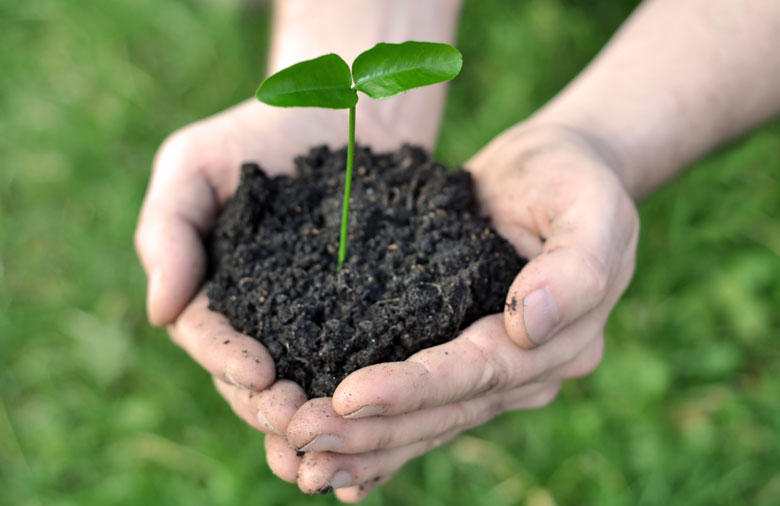Imagine turning your garbage into something even more precious than money – compost. By recycling your clippings and other natural waste materials – and allowing them to naturally break down – you can feed your plants with organic compost rather than with chemically treated fertilizers.
Here are 5 tips to get you started on your way to organic gardening by creating your own compost.
What can be composted?
Basically, if it grew as a plant, it can be composted. That includes grass, leaves and branches. It also includes certain paper products and other organic compost materials. Here is a selection of 10 compostable items from 50 Things You Can Compost:
- Fruit and vegetable peels
- Leaves
- Tea leaves and bags
- Seaweed
- Plants
- Shredded newspaper
- Straw
- Paper towel tubes
- Egg cartons
- Shopping bags
What’s the difference between ‘greens’ and ‘browns’?
Greens – nitrogen-rich, with a high moisture content so they break down faster:
- Vegetable scraps
- Grass clippings
- Weeds
- Coffee grounds
- Animal manure
- Egg shells
Browns – carbon-rich, with lower moisture content that take longer to break down:
- Straw
- Newspaper
- Sawdust
- Twigs
- Paper tubes
What shouldn’t be composted?
Although everything will eventually break down, composting certain organic items will attract bugs or rodents, or are just plain dangerous to plants. Here are 10 of the 30 things you should never compost:
- Cooking oil
- Feces
- Meat
- Milk
- Weeds
- Batteries
- Ceramics
- Diapers
- Glass
- Medical Waste
What are the different kinds of composting?
Piling – Make a pile of clippings, pruning and other organic materials in a secluded part of your property. Remember to spray water on it often and use a pitchfork or other tool to turn the pile to aerate the contents.
Tumbling – If you live in an urban area or don’t want to see a pile of decaying matter, compost tumblers require very little space, are easy to maintain and contain odors.
Vermicomposting or Worm Composting – To create liquid fertilizer, all food scraps can be put into one of these bins with a special breed of worm that breaks down the organic matter and creates a ‘tea’ that can be poured into plants.
What are some uses for compost?
Besides the tea created by the vermicomposter, when the organic matter has been broken down, it will actually look like rich, dark soil that can be spread on garden beds, in planters or even in your lawn. Being chemical-free and organic, it can only help plants grow and cannot cause any damage.
Sources
http://organicgardening.about.com/od/compost/a/Composting-101-How-To-Make-Compost.htm
http://www.motherearthnews.com/organic-gardening/3-ways-to-compost.aspx
http://www.mnn.com/lifestyle/recycling/stories/30-things-you-should-never-compost-or-recycle
http://organicgardening.about.com/od/howtocompost/a/50-Things-You-Can-Compost.htm
Related Article
Get a Head Start on Summer Produce By Starting Plants Indoors

Join the Discussion
0 Comments